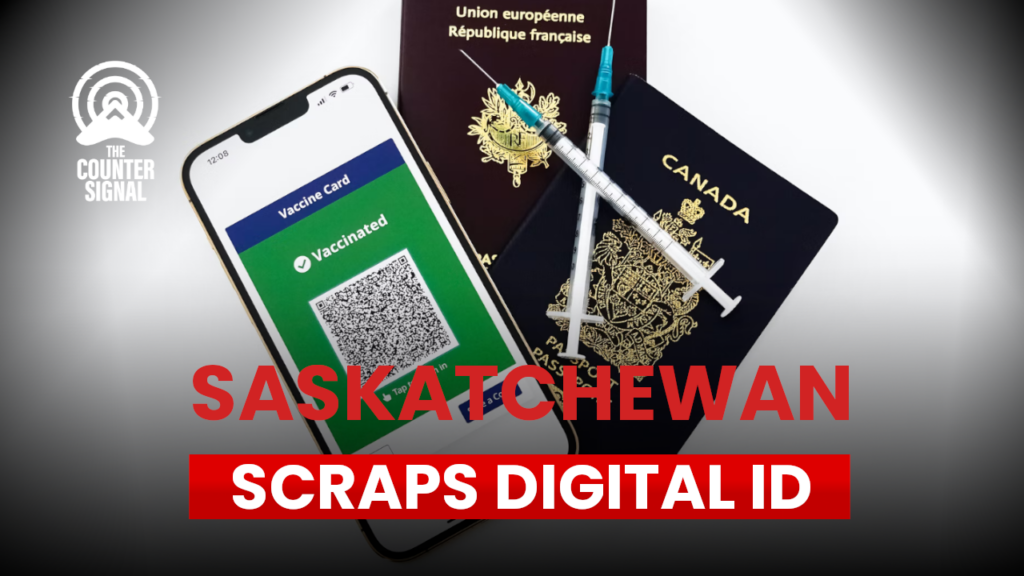The people of Saskatchewan have spoken, and the government just scrapped its plan to roll out a digital ID.

“There [were] enough people raising concerns that obviously you have to make that a factor,” said Saskatchewan MLA Jim Reiter. “But it certainly wasn’t the only one.”
Not proceeding because enough of us got loud about it! https://t.co/zqIe7dAuTJ
— 🇨🇦MarkFriesen🇨🇦 Patriot & Proud Nationalist (@MarkFriesen08) April 1, 2022
To gauge public interest, the government commissioned a poll between March 17 and 22. A whopping 58 per cent of respondents were unable to state they were even “somewhat comfortable” with a digital ID. In other words, the majority wants nothing to do with a monitoring and surveillance system that could lead to a social credit system like the one currently implemented in China.
The public’s aversion to a digital ID seems to reflect the collective awakening concerning the WEF Great Reset agenda.
Increasingly, Canadian politicians are being confronted about their relationship with the globalist organization. In fact, Maxime Bernier and Pierre Poilievre both publicly distanced themselves from the WEF over the last few weeks.
As mentioned, Reiter notes factors beyond the public’s disapproval of a digital ID were also relevant in the decision to scrap or shelve the plan.
He further comments that the cost of implementing the system is a large concern — especially if no one in the province wants to use it — while privacy and security were also considered. These are fair concerns, especially given that the Liberals were recently caught discussing hunting down the unvaccinated by utilizing a digital ID system.
With Alberta and Ontario already having rolled out a digital ID system, Reiter’s team will monitor colleagues’ uptake and cost-benefit feedback in those jurisdictions.
“We will be watching very closely to observe how their digital ID programs progress,” a Ministry of SaskBuilds official stated.
Reiter says that he isn’t sure if or when the government will resume implementing a digital ID.
“It won’t be in the very near future. We’re just putting it to bed for now.”

